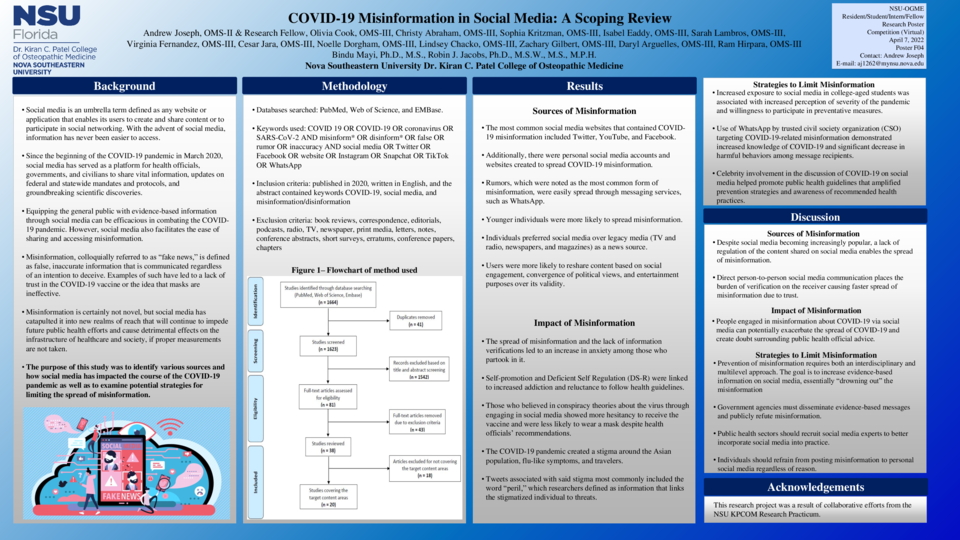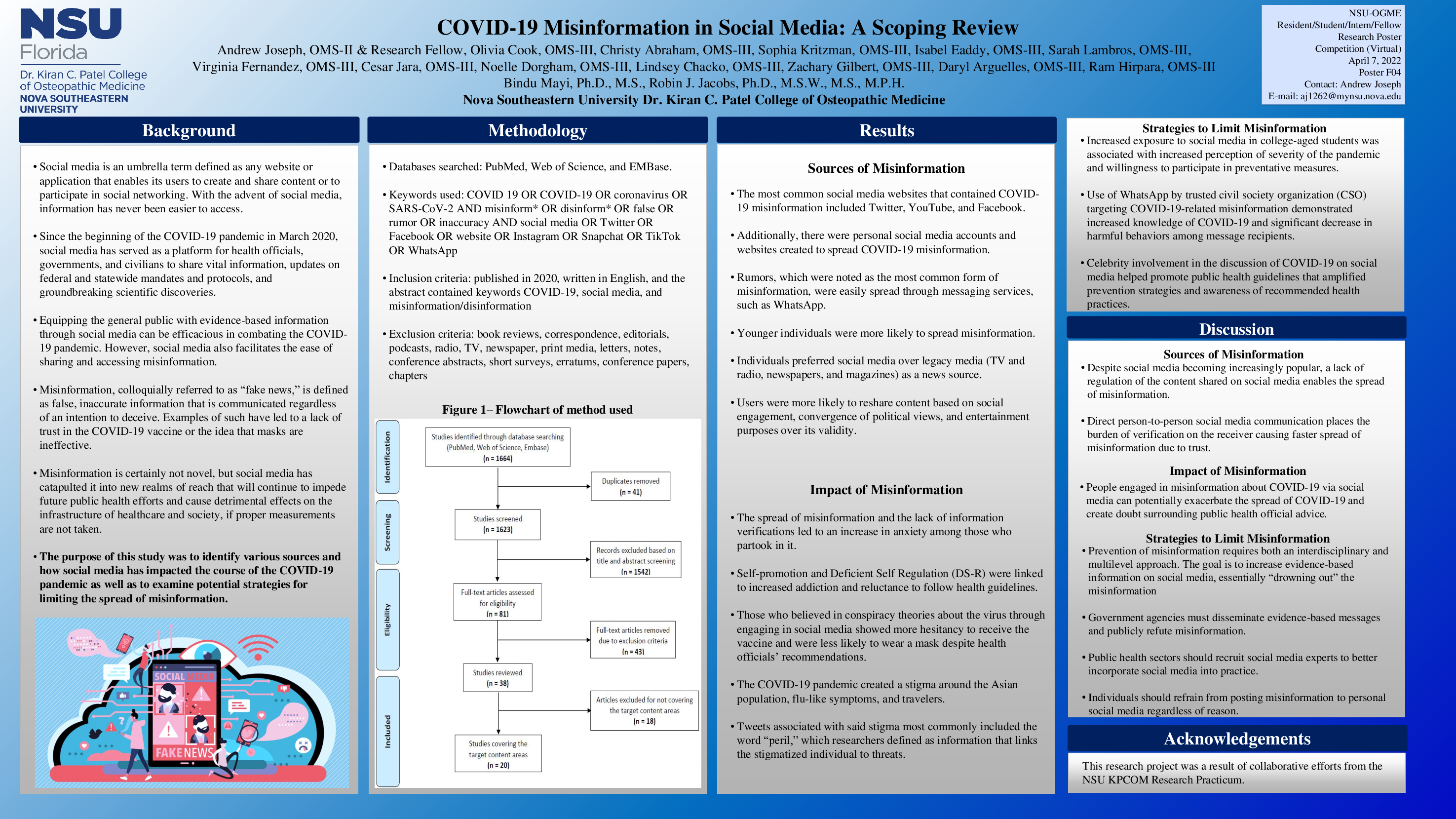COVID-19 Misinformation in Social Media: A Scoping Review
Osteopathic Medicine, Nova Southeastern University Dr. Kiran C. Patel College of Osteopathic Medicine, Davie, USA
Andrew M. Joseph, Olivia M. Cook, Medical StudentOsteopathic Medicine, Nova Southeastern University Dr. Kiran C. Patel College of Osteopathic Medicine, Clearwater, USA
Olivia M. Cook, Christy Abraham, Medical StudentDr. Kiran C. Patel College of Osteopathic Medicine, Nova Southeastern University, Fort Lauderdale, USA
Christy Abraham, Sophia Kritzman, Medical StudentDr. Kiran C. Patel College of Osteopathic Medicine, Nova Southeastern University, Fort Lauderdale, USA
Sophia Kritzman, Isabel Eaddy, Medical StudentDr. Kiran C. Patel College of Osteopathic Medicine, Nova Southeastern University, Fort Lauderdale, USA
Isabel Eaddy, Sarah Lambros, Medical StudentDr. Kiran C. Patel College of Osteopathic Medicine, Nova Southeastern University, Fort Lauderdale, USA
Sarah Lambros, Virginia Fernandez, Medical StudentDr. Kiran C. Patel College of Osteopathic Medicine, Nova Southeastern University, Fort Lauderdale, USA
Virginia Fernandez, Cesar E. Jara Silva, DO, Resident PhysicianGeneral Surgery, Nova Southeastern University Dr. Kiran C. Patel College of Osteopathic Medicine, Fort Lauderdale , USA
Cesar E. Jara Silva, Noelle Dorgham, Resident Physician, DODr. Kiran C. Patel College of Osteopathic Medicine, Nova Southeastern University, Fort Lauderdale, USA
Noelle Dorgham, Lindsey Chacko, Medical StudentDr. Kiran C. Patel College of Osteopathic Medicine, Nova Southeastern University, Fort Lauderdale, USA
Lindsey Chacko, Zachary A. Gilbert, Medical StudentOsteopathic Medicine, Nova Southeastern University Dr. Kiran C. Patel College of Osteopathic Medicine, Davie , USA
Zachary A. Gilbert, Daryl Arguelles, Medical StudentDr. Kiran C. Patel College of Osteopathic Medicine, Nova Southeastern University, Fort Lauderdale, USA
Daryl Arguelles, Ram J. Hirpara, Medical StudentKiran Patel College of Osteopathic Medicine, Nova Southeastern University - KPCOM, Fort Lauderdale , USA
Ram J. Hirpara, Bindu S. Mayi, MSc, PhDBasic Sciences, Dr. Kiran C. Patel College of Osteopathic Medicine, Nova Southeastern University, Fort Lauderdale, USA
Bindu S. Mayi, Robin J. Jacobs, Professor, MPH, PhDMedical and Behavioral Research; Health Informatics; Medical Education, Nova Southeastern University, Fort Lauderdale, USA
Robin J. Jacobs





